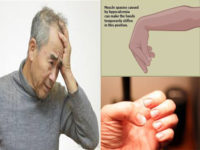“Don’t rush to crush your tablets”
If you or someone you look after is finding it hard to swallow tablets or capsules (solid medicines), it’s easy to think the answer is to crush a tablet or open a capsule to make swallowing simpler. Mixing the contents of a capsule with food or adding a crushed tablet to a drink might seem easier than bothering your doctor or nurse to change a prescription to an alternative like a Liquid Medicine. But you should never crush a tablet or open a capsule without first checking that it is safe to do so.
Why you shouldn’t rush to crush
Crushing tablets or opening capsules which aren’t designed to be taken in this way:
- May cause serious side effects
- May prevent the medicine from working properly
- May slow down recovery from illness
Many modern medicines are very sophisticated and are developed using techniques which influence how the medicine works. After years of research, there are special modifications to some tablets which can mean the drug is released very slowly, so you only need to take one tablet or capsule a day. Some tablets have coatings designed to protect your stomach from the medicine or to prevent the stomach acid from attacking the tablet.
These special modifications can be destroyed by crushing and the tablet might have a different effect and may cause side effects if it is crushed. You really can’t tell just by looking at a tablet or capsule if it does have one of these special modifications or coatings.
Each of the modifications or coatings is there for a different reason and will be damaged by crushing.
Sugar or film coating – surrounds the tablet to make it taste better. Crushing these types of tablets may make them to taste very unpleasant.
Enteric coating – tablets with an enteric coating should never be crushed. The coating is designed to hold the tablet together in the stomach and may be there to protect the stomach from the medicine, protect the medicine from the acid in the stomach or to release the medicine after the stomach e.g. in the intestine.
Modified release – this means the medicine has been modified so it is released slowly and doesn’t need to be taken so often. The amount of medicine in the body increases slowly so that the chance of side effects is reduced. These tablets should never be crushed as this would release all of the medicine very quickly which could be harmful.
What to do instead of crushing
- Go and see your doctor or nurse who will be able to prescribe your medicine in a form that’s easier to take. Most tablets and capsules are available as liquid medicines, which can be easier to swallow.
- Ask your pharmacist’s advice if you are unsure whether the patient information leaflet says your medicine can or can’t be crushed, capsule opened or mixed with food.
Recent guidelines for healthcare professionals state that they should always ask a patient about swallowing difficulties before prescribing a medicine, so if you haven’t been asked, make sure you tell your doctor, nurse or pharmacist that you’re having a problem. There’s no need to suffer in silence!














